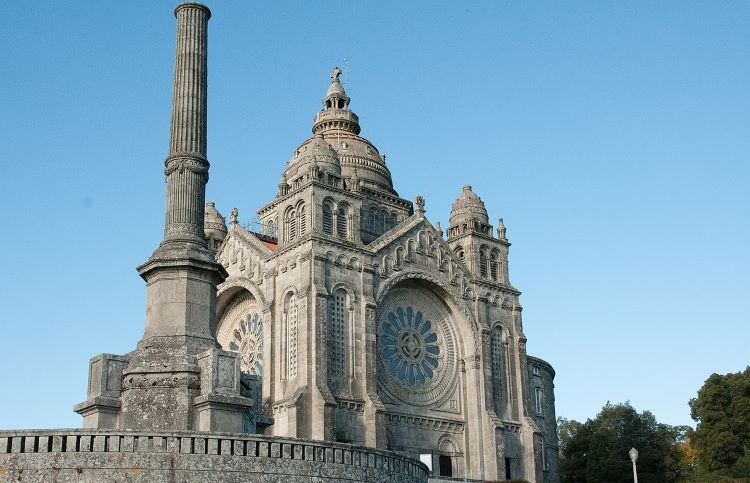Eduardo González
The Portuguese town of Viana do Castelo will host on November 4 the XXXIII Spanish-Portuguese Summit, which will address, among other issues, cross-border connections and will coincide with a moment of special harmony between the two countries in relation to the EU energy debate.
The Summit will be chaired by the President of the Government, Pedro Sánchez, and the Prime Minister of Portugal, António Costa, and will be attended, on the Spanish side, by the three Vice-Presidents and the Ministers of Foreign Affairs, Interior, Economy, Industry, Trade and Tourism, Territorial Administration, Transport, Equality and Science, together with their Portuguese counterparts. The previous Summit was held on October 28, 2021 in the Extremadura town of Trujillo and, on this occasion, it will take place in the region of Minho, bordering Galicia.
The meeting will focus, above all, on science and technology in Spain and Portugal and, in fact, before the start of the Summit, the two heads of government will visit the International Iberian Nanotechnology Laboratory in Braga on November 4. In addition, the participants in the meeting will also visit the Paredes de Coura vaccine factory of the Galician biopharmaceutical company Zendal.
One issue that will inevitably be discussed during the Summit will be cross-border connections, an issue that was already addressed last September during the fourteenth meeting of the Spanish-Portuguese Commission for Cross-Border Cooperation.
Last July, the Portuguese Minister of Infrastructures, Pedro Nuno Santos, declared that the Viana do Castelo meeting could be the “ideal moment” to announce the high-speed train projects between Portugal and Galicia. For her part, the Spanish Minister of Transport, Raquel Sanchez, recently assured that the Government intends to ratify at the Summit its commitment to the Southern Exit of Vigo for the high-speed train. The Xunta de Galicia has requested that the high-speed train between Vigo and Oporto, which would link up with the Lisbon-Oporto Atlantic axis planned by Lisbon, be promoted through this exit. Likewise, Castilla y León is interested in promoting the connection between Bragança and the Sanabria high-speed train station, and Portugal is moving forward with the high-speed train works in the Evora-Elvas section to link with Badajoz, in Extremadura.
In addition, the Summit will discuss the Spanish-Portuguese Iberian Center for Energy Storage Research in Cáceres, which is expected to be operational by the end of 2023, and the creation of the Cross-border Worker Statute between Spain and Portugal, as agreed at the Trujillo Summit, will be addressed.
In addition, the two governments will address cross-border tourism and the development of a shared cultural agenda. The Summit could also discuss issues such as digital connectivity along the border, especially in rural areas; the creation of an Iberian “healthy food” brand by unifying the Alimentos de España and Produtos Tradicionais Portugueses brands; and the updating of the Albufeira Convention, which regulates the course of common rivers.
The Iberian mechanism
Inevitably, during the Summit, the European agenda will be discussed and, most probably, the leaders of the two countries will address the creation of a common front so that the Iberian Peninsula ceases to be an “energy island”. Recently, Sánchez and Costa obtained the support of the German Chancellor, Olaf Scholz, in favor of energy interconnections with the rest of the EU through the Pyrenees and, last Friday, the two Iberian leaders reached an agreement in Brussels with the President of France, Emmanuel Macron, for the implementation of an underwater gas pipeline between Barcelona and Marseille (BarMar).
In any case, the Summit comes at a time of special complicity between the two countries on account of the debate generated in the EU by the need to put an end to energy dependence on Russia and by the increase in electricity prices. Since June 15, Spain and Portugal have been governed by the so-called “Iberian mechanism”, which allows a ceiling of 40 euros per megawatt/hour to be set on the price of gas used to produce electricity.
The application of this mechanism was made possible after the European Council of March 25 approved the right of the two Iberian countries to manage their own reference gas prices for combined cycle power plants, in view of the “energy island” nature of the peninsula due to its very low interconnection with the European energy market. On October 21, the Heads of State and Government of the 27 agreed, at the European Council in Brussels, on a series of measures which, according to Pedro Sánchez, will make it possible “to extend the Iberian model, or something similar, to the rest of the EU, a mechanism which has already saved our consumers 2,900 million euros”.






